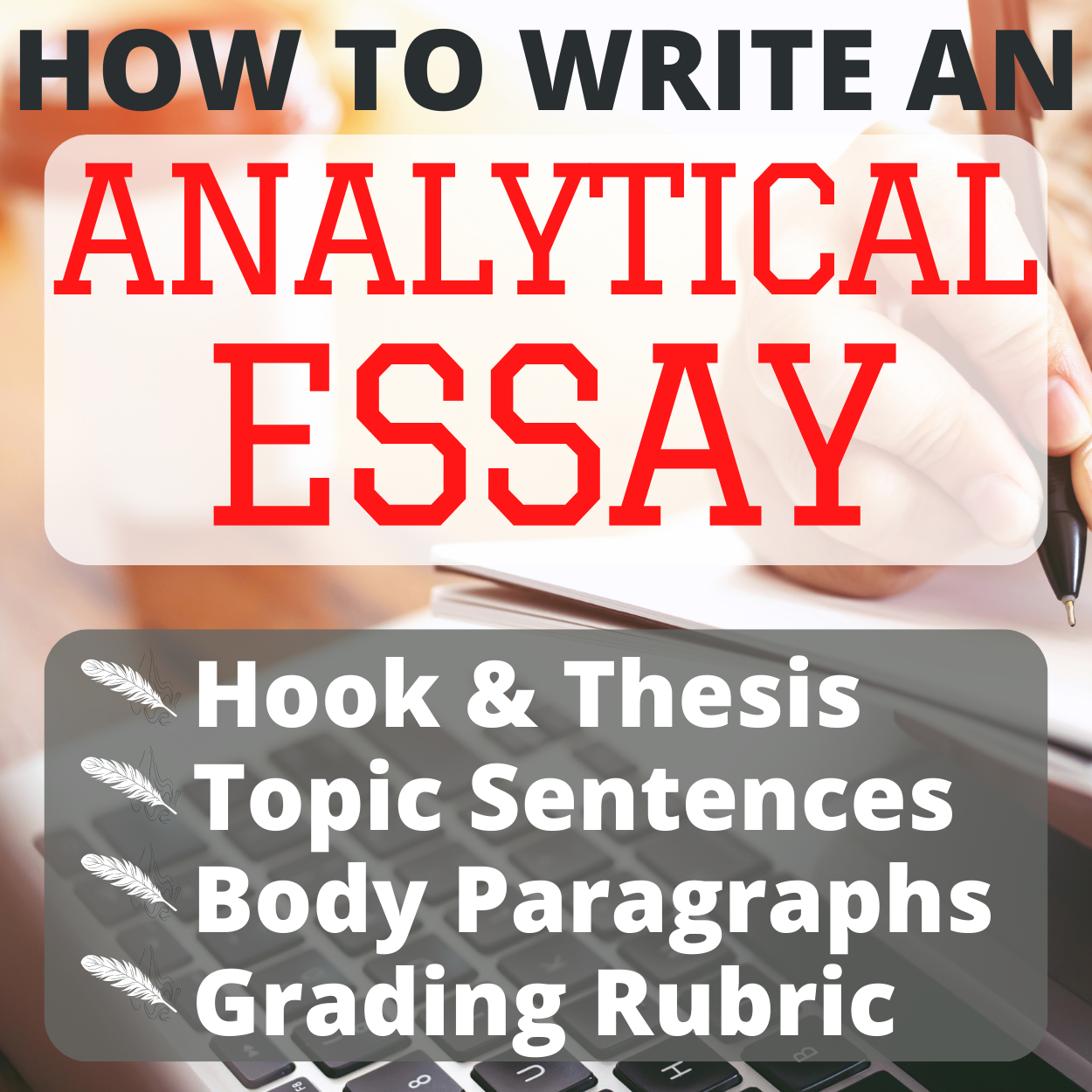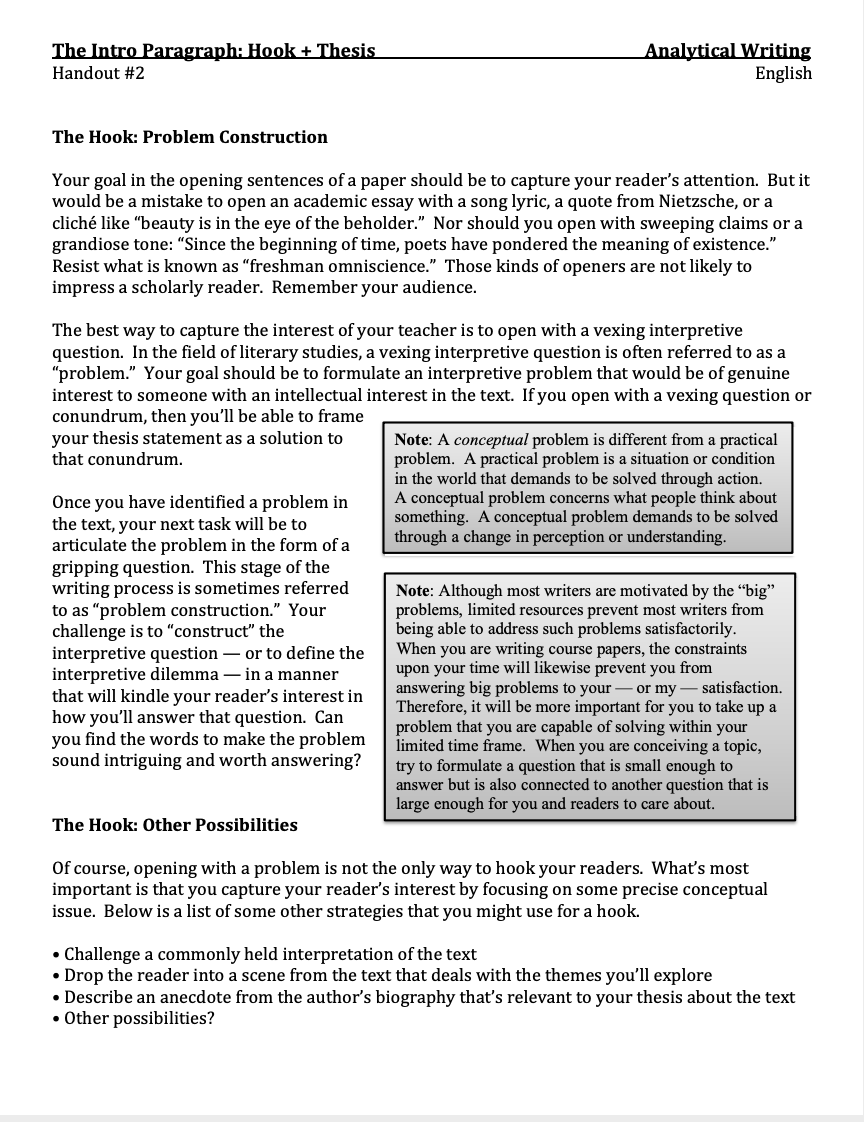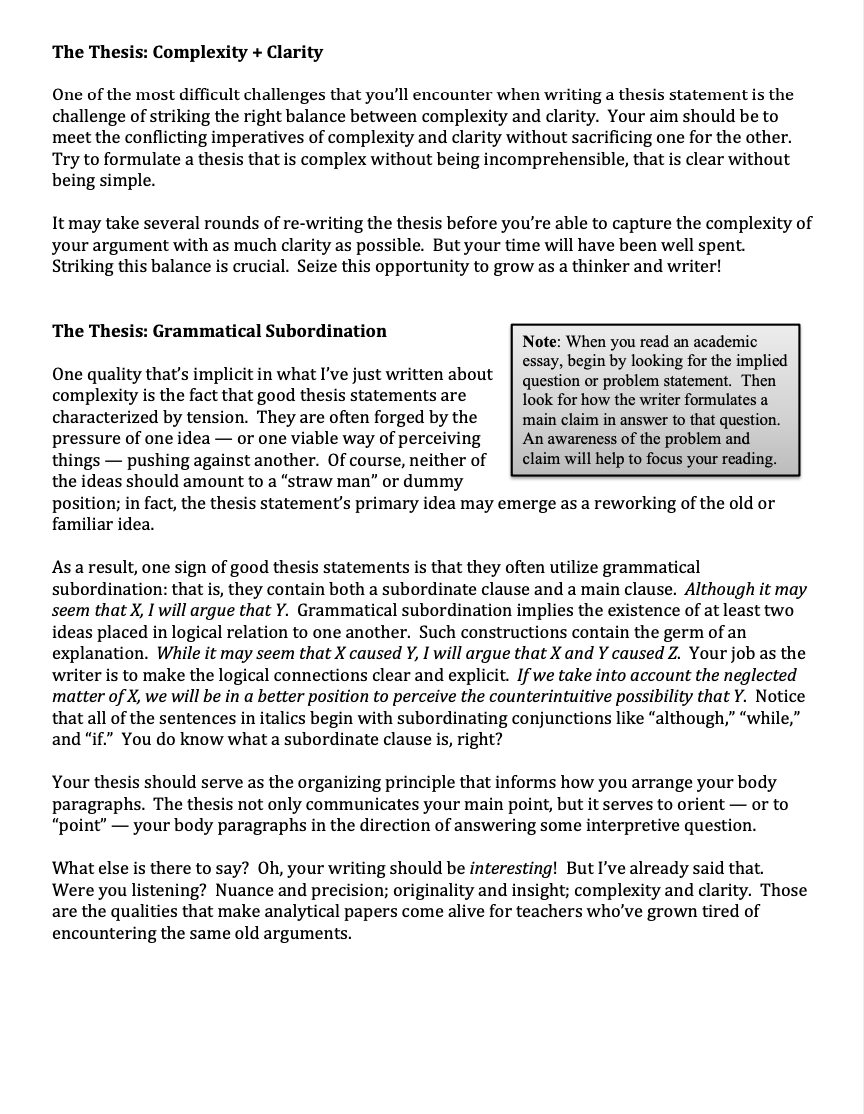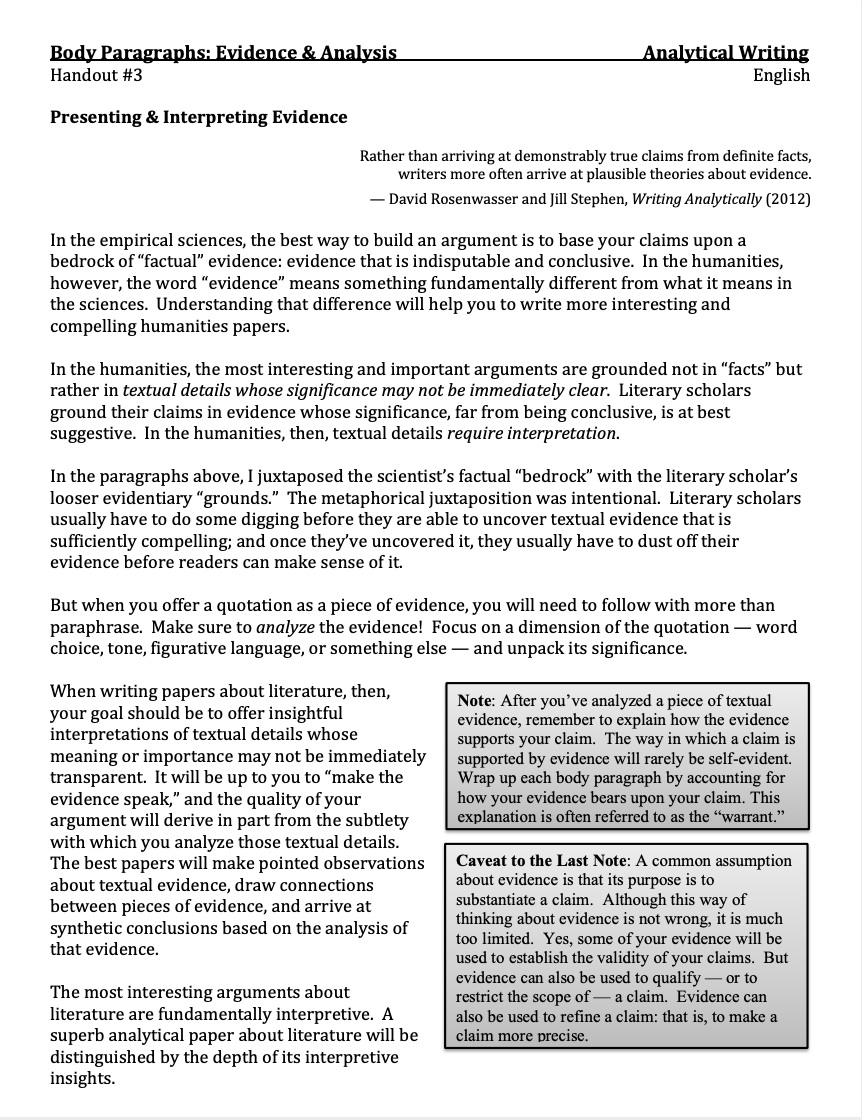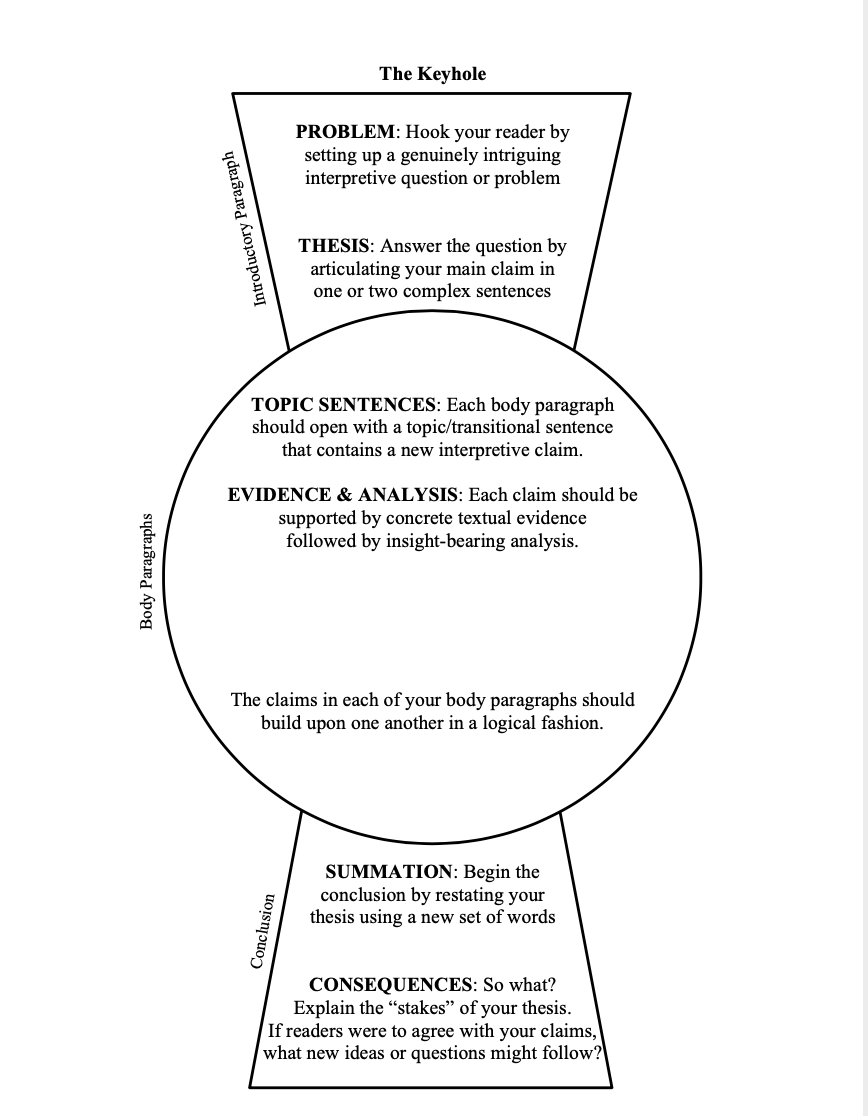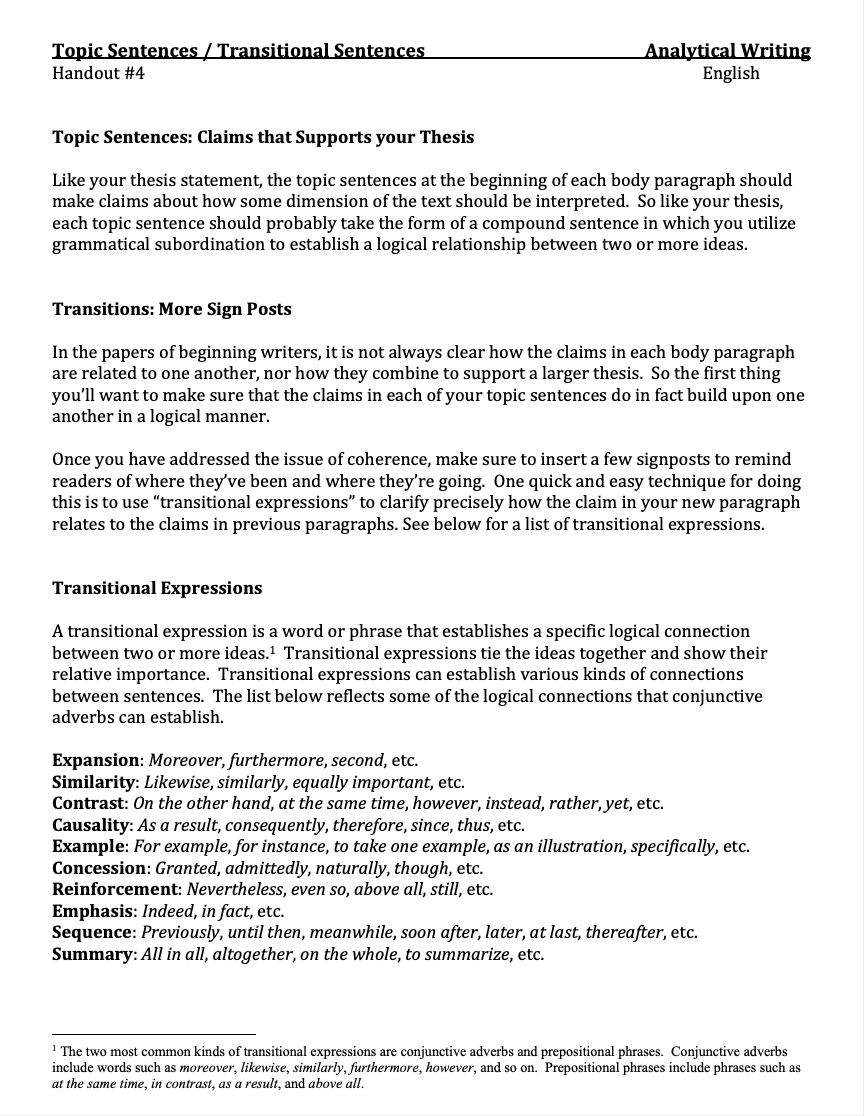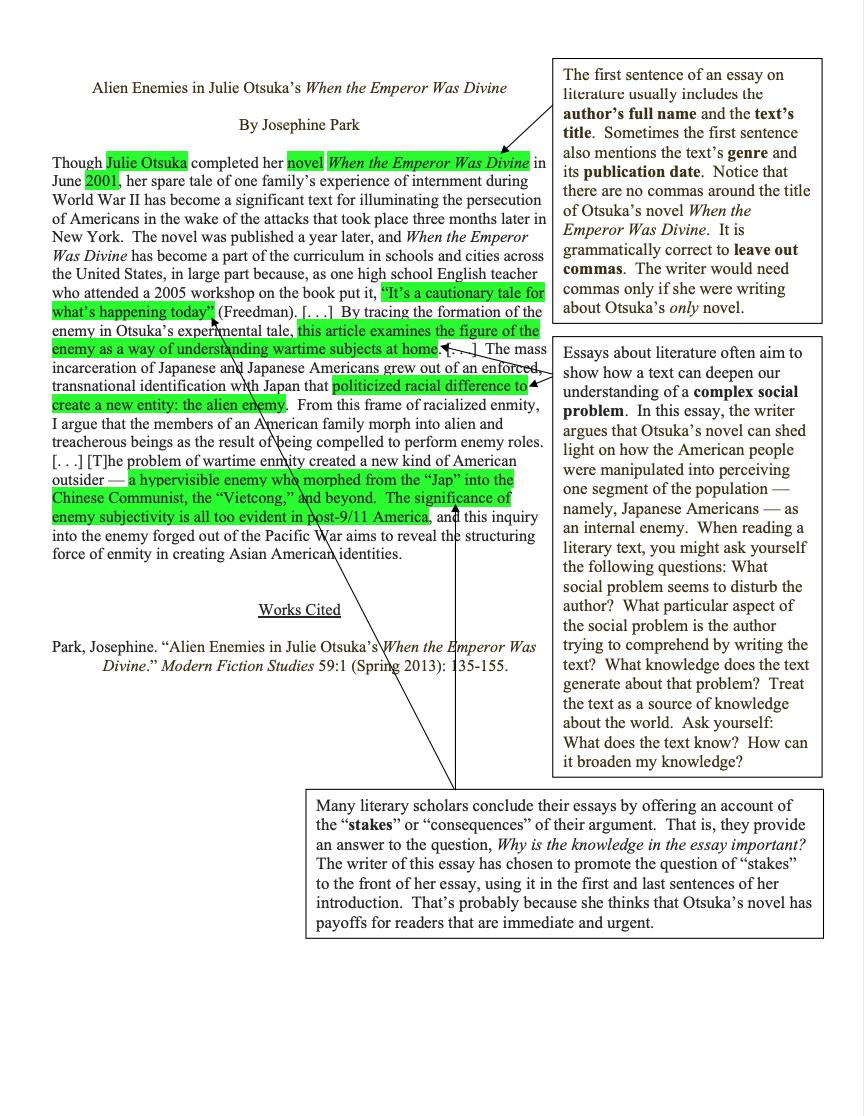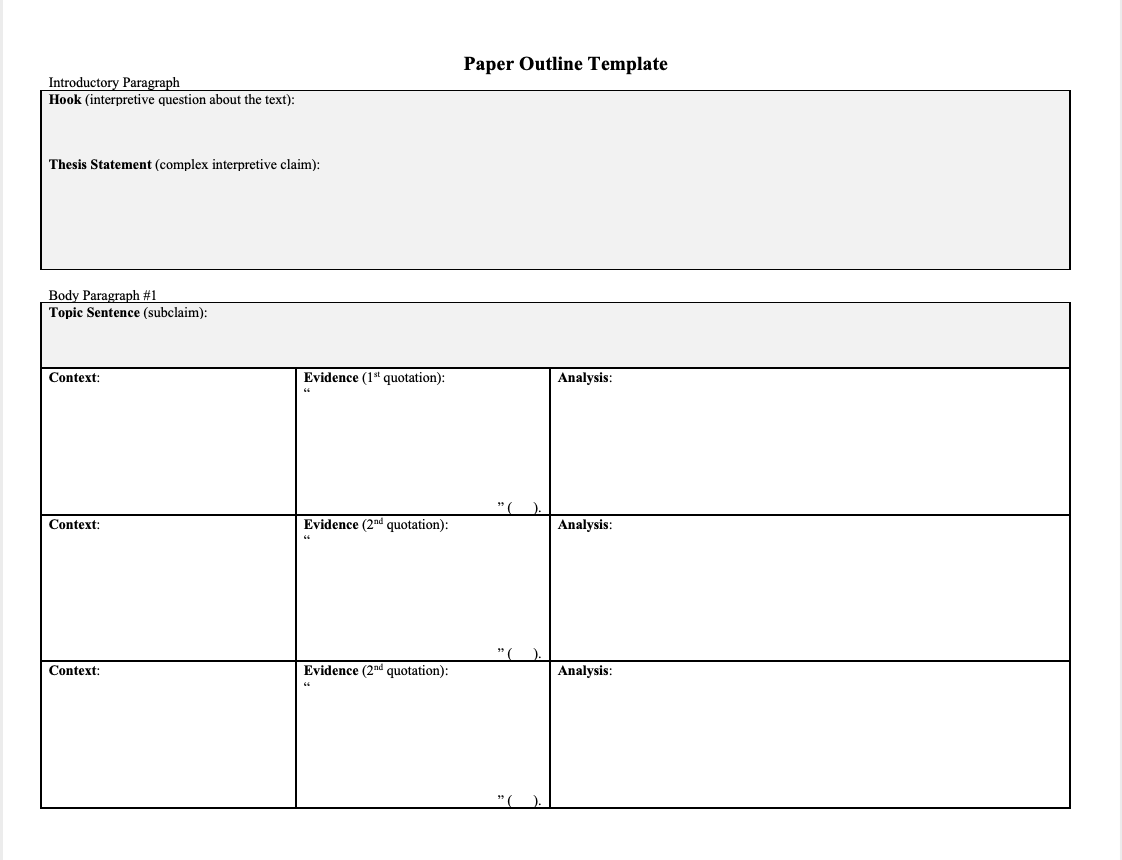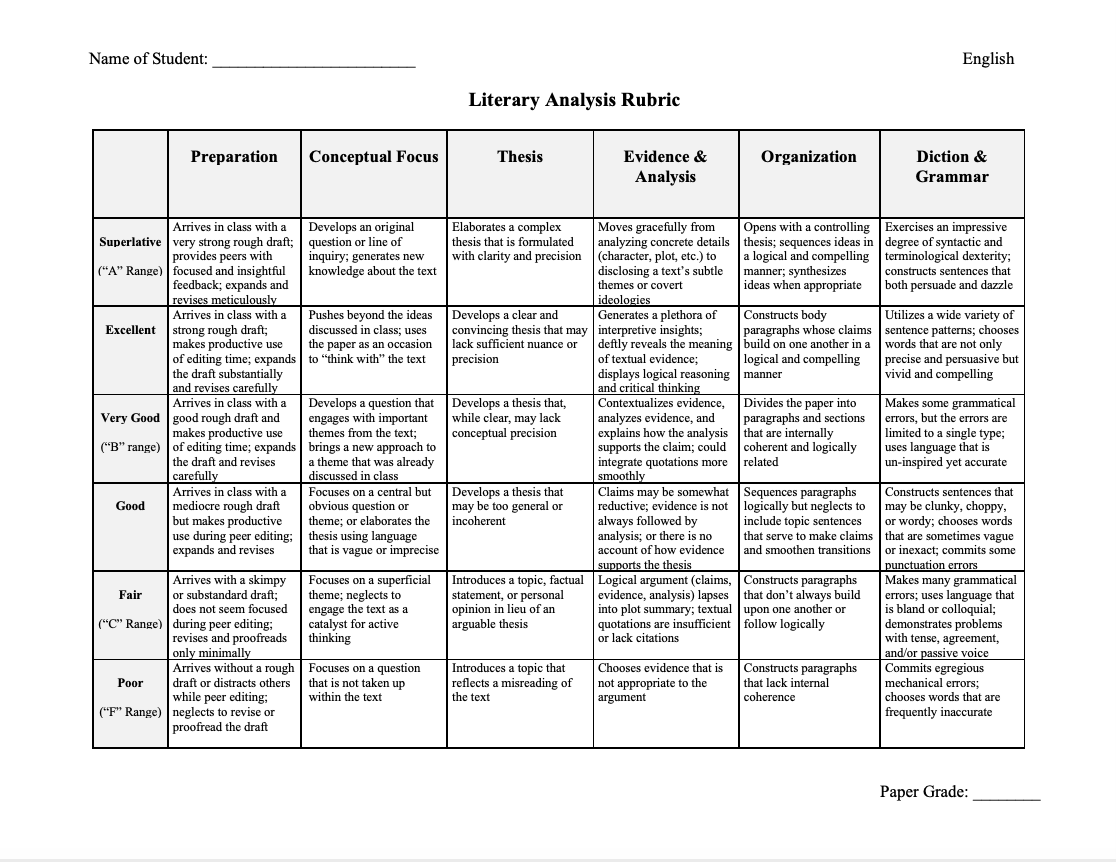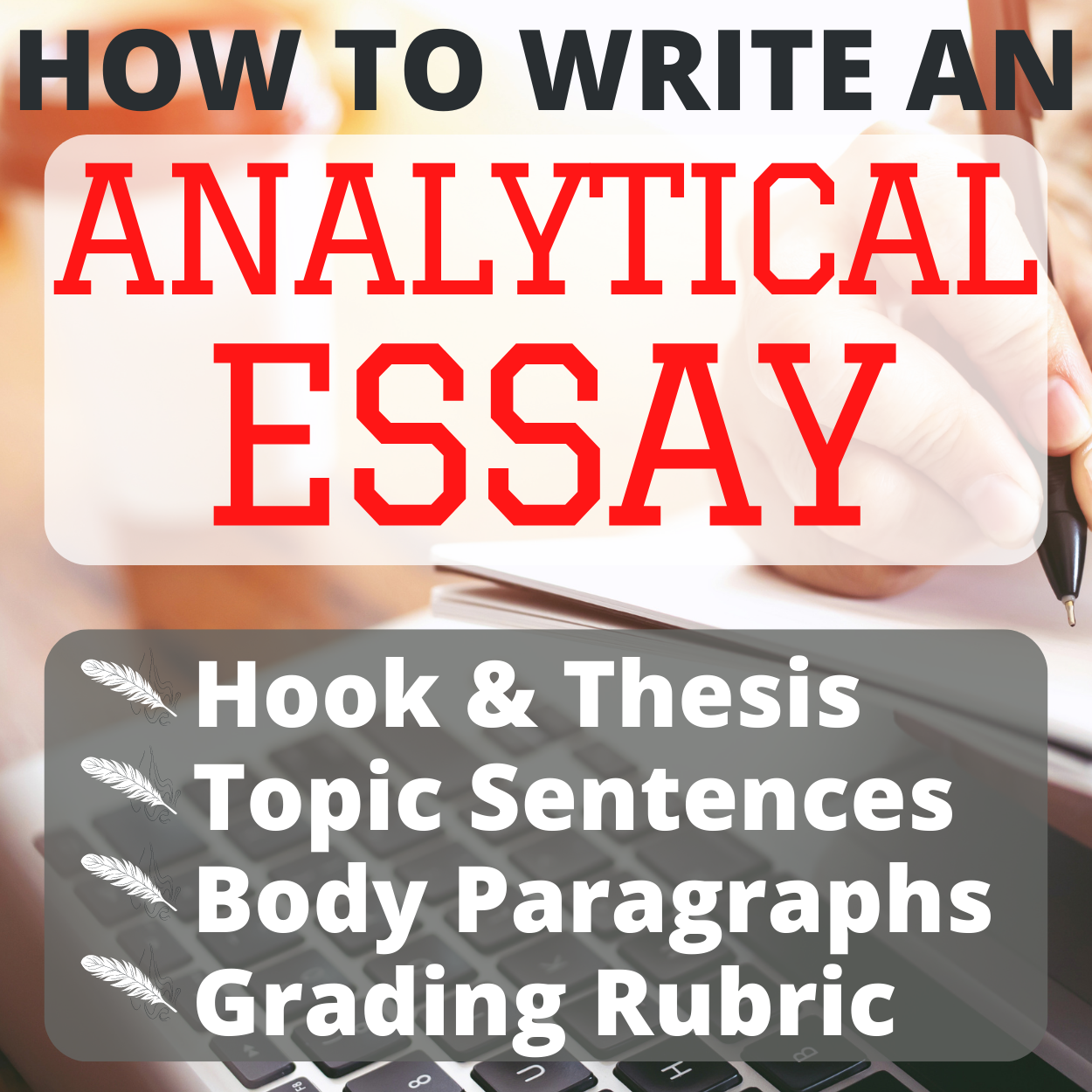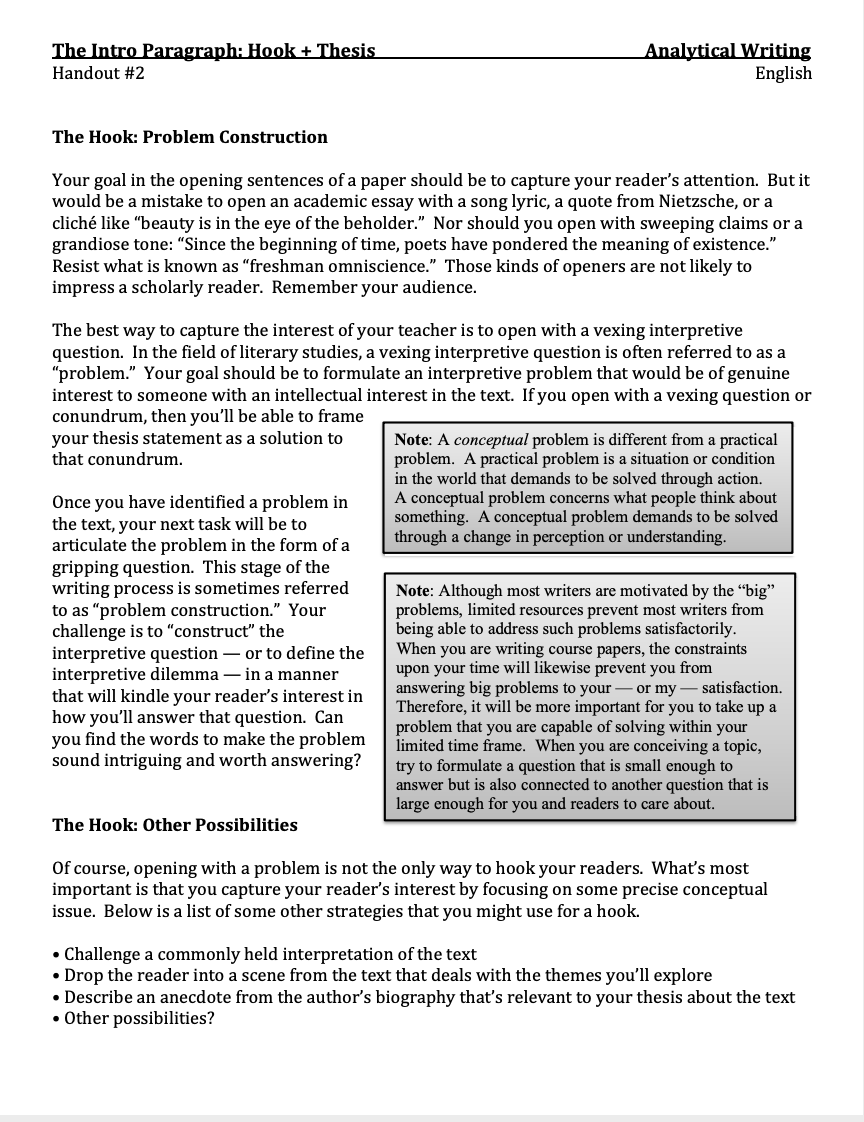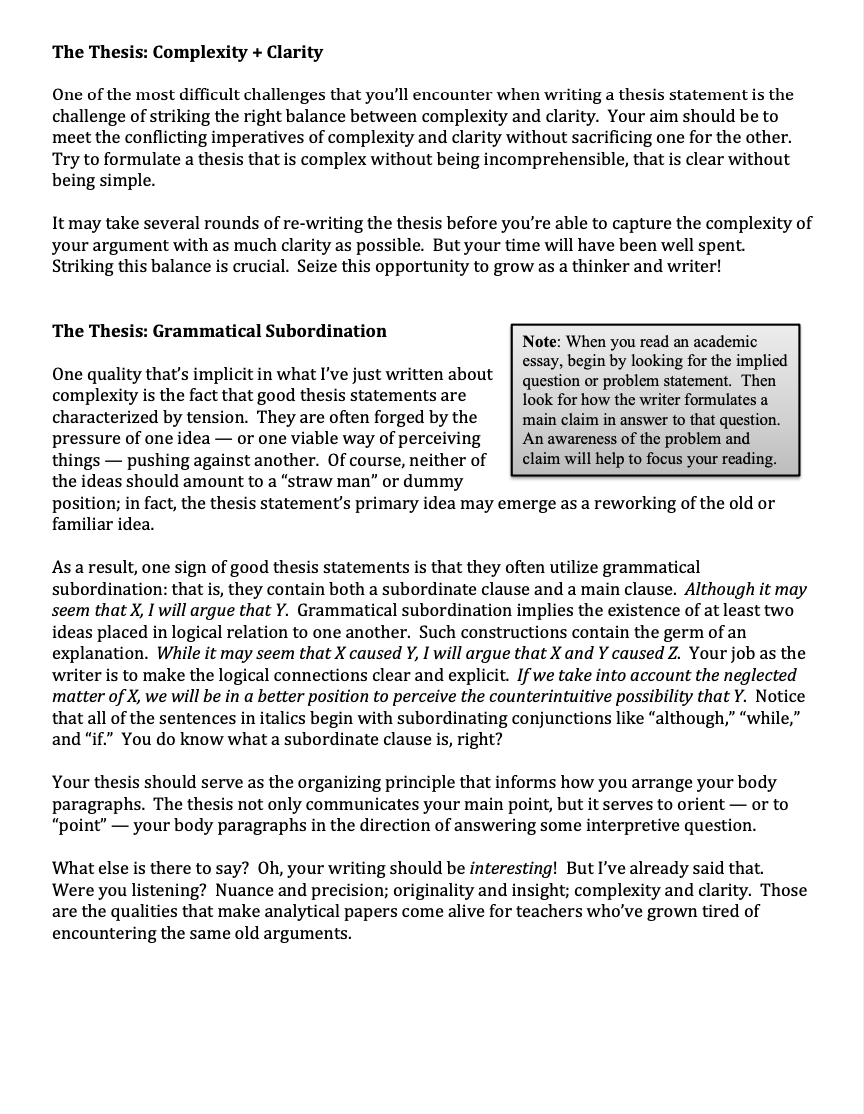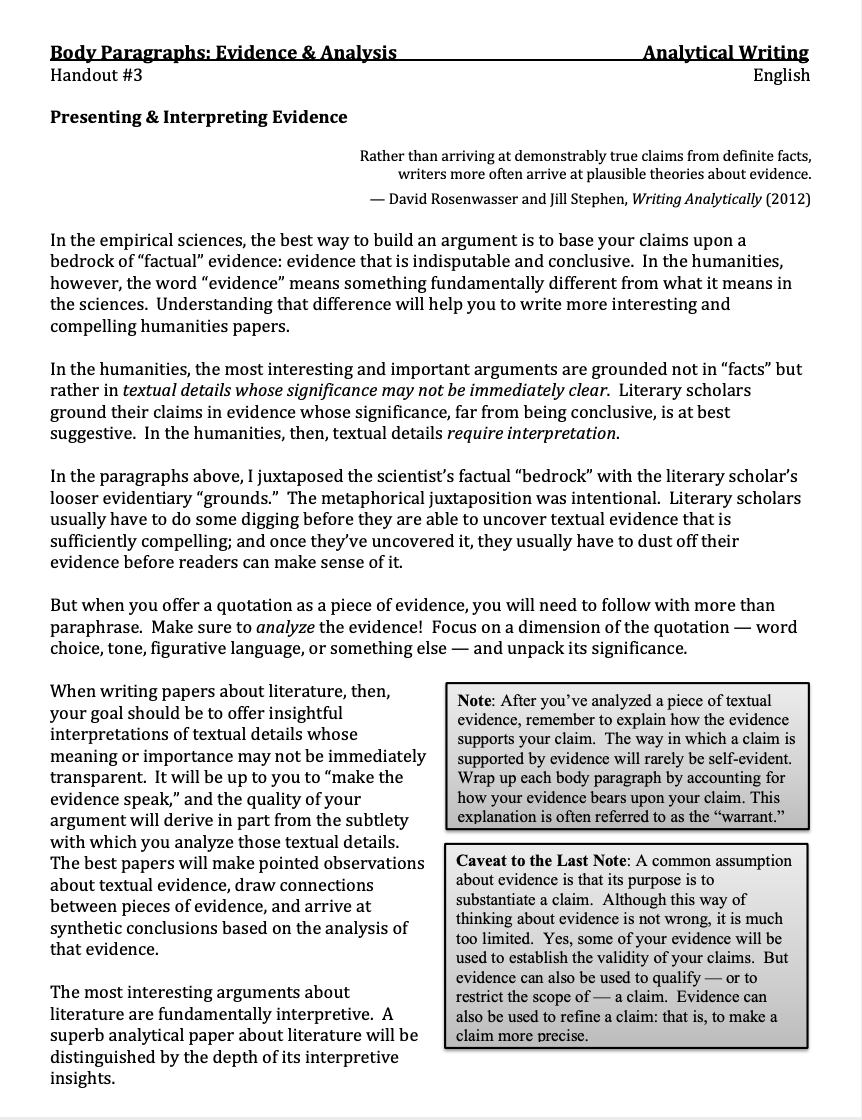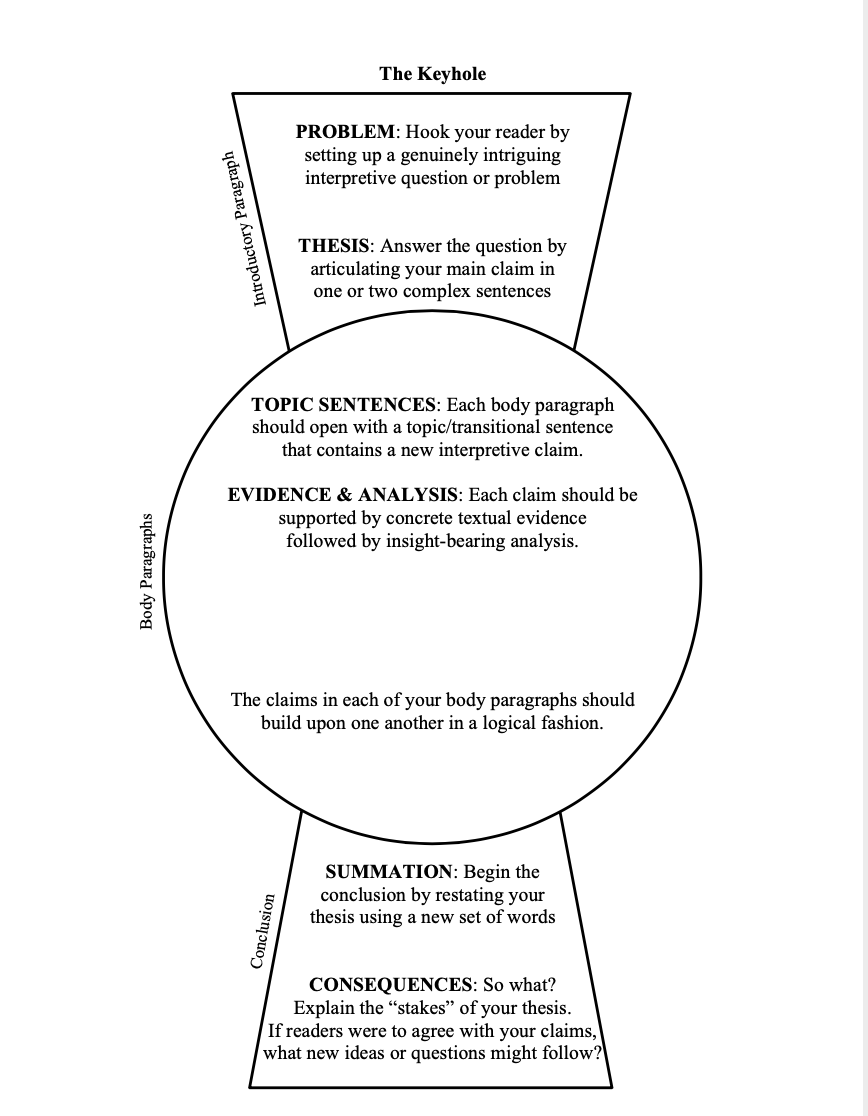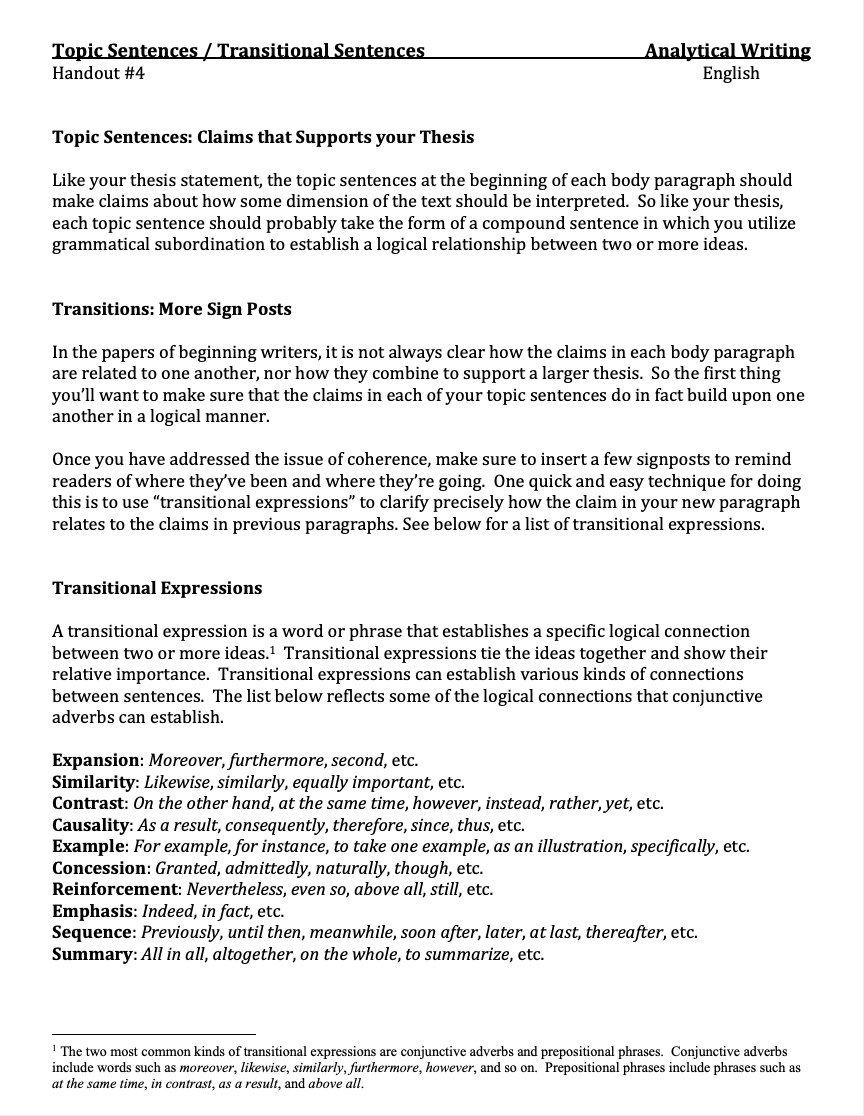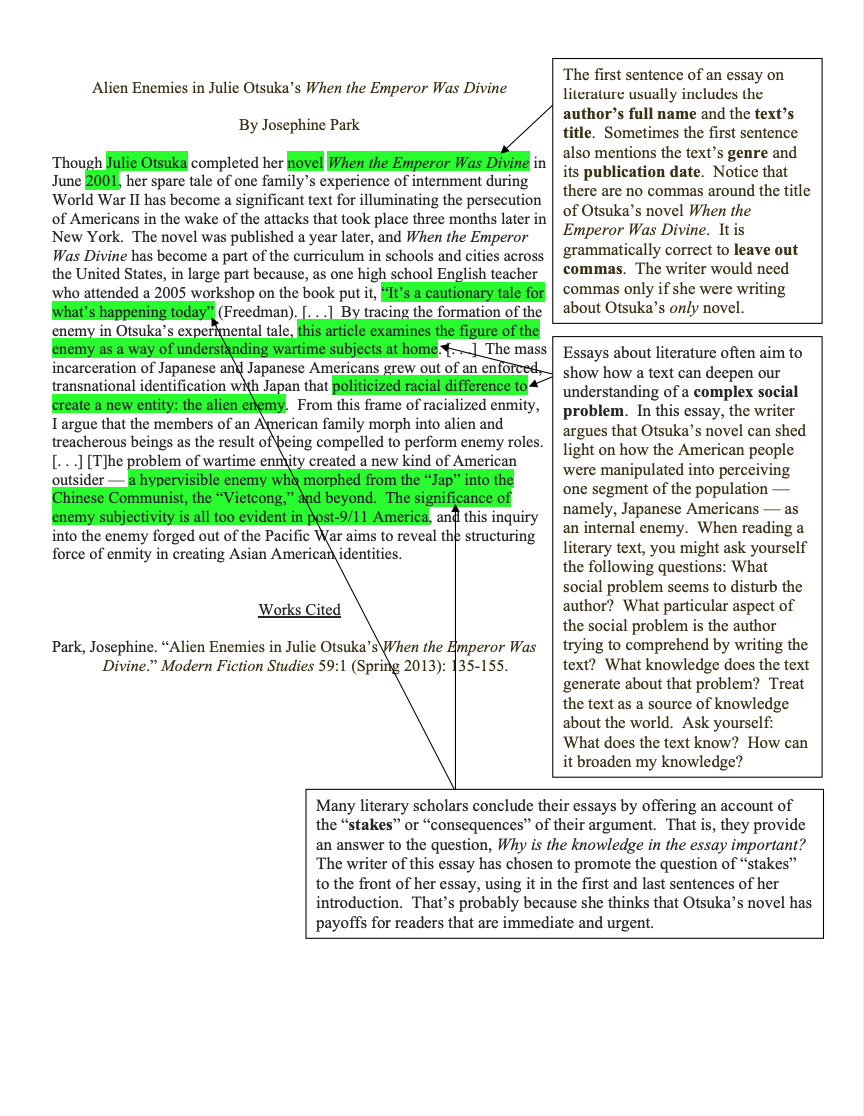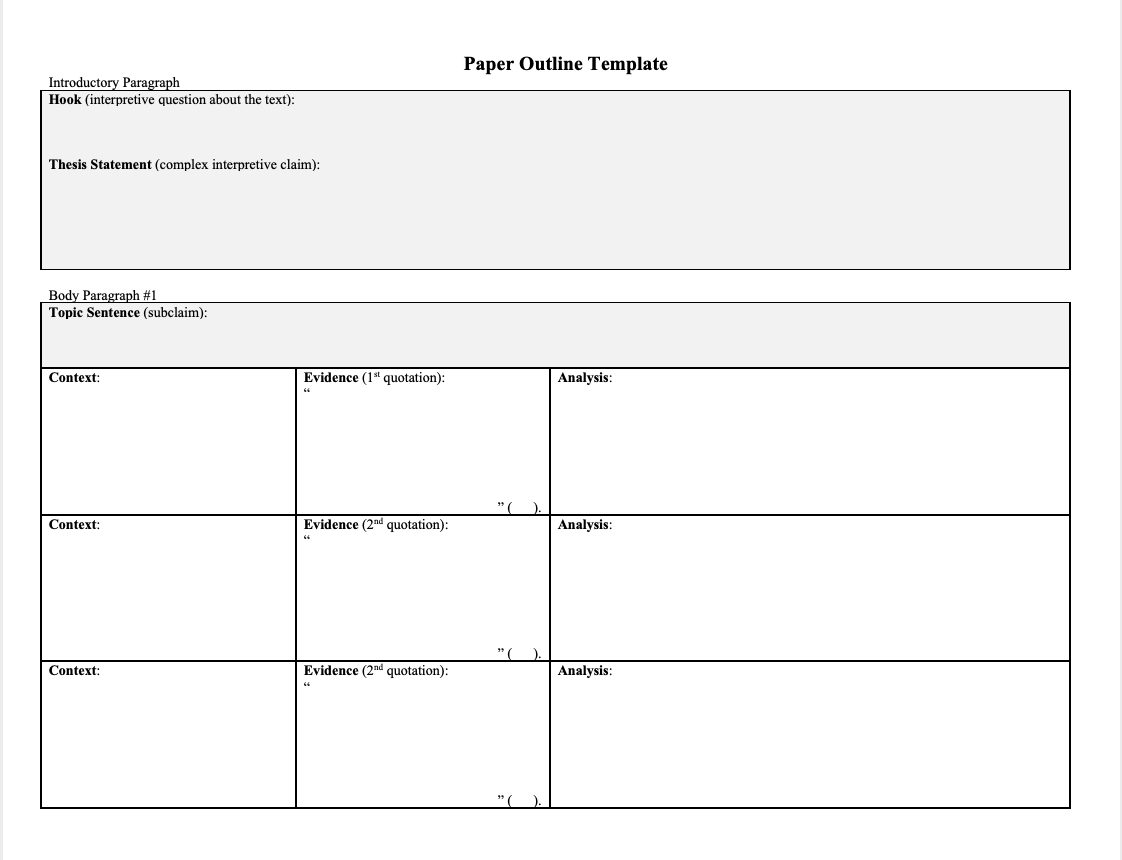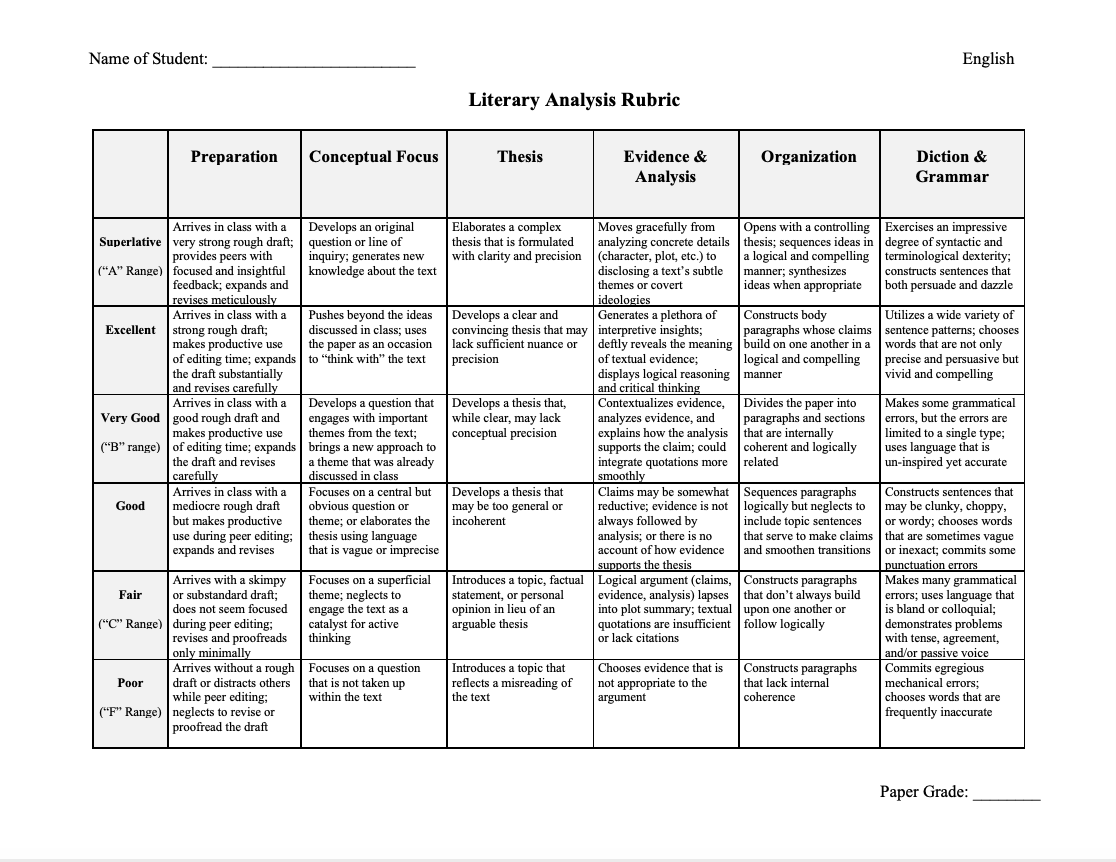Rigorous Resources
How to Write an Analytical Paper on Literature: Writing Advice and Examples for the Hook, Thesis, & Body Paragraphs
How to Write an Analytical Paper on Literature: Writing Advice and Examples for the Hook, Thesis, & Body Paragraphs
Couldn't load pickup availability
This 25-page EDITABLE writing curriculum has everything you'll need to help your students write high-quality analytical papers on any literary text. This unit was designed for high-school English teachers who want to help students improve their analytical writing. But it could also be used by other teachers and/or students to learn how to write high-quality expository essays.
Here are some highlights from this 25-page unit on analytical/expository writing:
• The Writing Process (Handout #1): This handout offers several tips about how to choose a topic for an analytical paper on literature. Encourage your students to use the writing process as an opportunity to deepen their knowledge about the text. (4 pages)
• The Intro Paragraph: Hook & Thesis (Handout #2): In the first page of this handout, students learn to identify and formulate the interpretive questions which they will hope to answer or solve while writing their papers. The challenge of "problem construction" will present most high school students with the opportunity to develop a new and exciting skill — one that will serve them well in college and beyond. In the second and third pages of this handout, students learn to write thesis statements that balance complexity with clarity. They learn to use grammatical subordination in order to generate a main claim that is sufficiently complex to anchor an entire paper. (4 pages)
• Body Paragraphs: Evidence & Analysis (Handout #3): In this handout, students learn about how "evidence" in the humanities differs from evidence in the sciences. Because evidence in the humanities is rarely factual or indisputable, student writers will always need to frame, unpack, and analyze their evidence. This handout offers several suggestions about how, as it were, to "make the evidence speak." It also offers strategies for how to organize evidence into a series of body paragraphs that build upon one another in a logical and compelling manner. (2 pages)
• Topic Sentences / Transitional Sentences (Handout #4): This handout offers advice about how students can use transitional expressions to clarify the logical connections between the claims in each of their topic sentences. It includes a list of different types of transitional expressions along with several examples. (2 pages)
• Precepts for Effective Prose (Handout #5): This handout features about a dozen precepts or "rules of thumb" that students should follow when writing academic papers. The handout contains brief paragraphs on each of the following topics: Avoid plot summary; Always use the present tense; Minimize intensifiers; Alternatives to writing "It says"!! (2 pages)
• Sample Introductory Paragraphs: Look at six introductory paragraphs from articles published by literary scholars in academic journals over the last decade. Invite students to reflect on what they find to be particularly effective — or ineffective —about each introductory paragraph. How does each writer hook the reader's interest? How do they construct an interpretive problem? How do they generate a complex thesis statement? (6 pages)
• Paper Outline Template: Invite students to use this template when generating the outlines for their analytical papers. (3 pages)
• Rubric: Use this rubric to evaluate the analytical papers that your students write in response to any literary text. (1 page)
The entire writing unit will come to you in two different formats: Word doc *and* PDF. Because the Word doc is editable, you'll be able to customize the materials to suit your teaching style and/or your students' skill levels — year after year! If you don't have Microsoft Word, you'll still be able to access the entire unit as a PDF file, which is easy to navigate and quick to print!
I'm eager to do everything I can to make sure you have an amazing experience with helping students to write compelling analytical papers. If you have any questions about this resource packet, please don't hesitate to contact me via the email address below.
Thank you for choosing Rigorous Resources!
Happy teaching,
Adam Jernigan, Ph.D.
adamjernigan@gmail.com
Share
